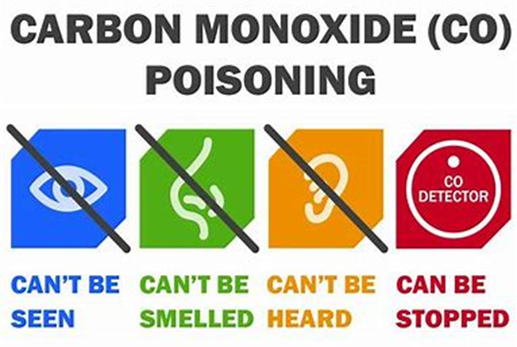Symptoms of Carbon Monoxide Poisoning
The most common symptoms of CO poisoning are headache, dizziness, weakness, upset stomach, vomiting, chest pain, and confusion.
- Sudden chest pain may occur in people with angina.
- Symptoms can vary widely from person to person.
- During prolonged or high exposures, symptoms may worsen and include vomiting, confusion and collapse in addition to loss of consciousness and muscle weakness.
CO symptoms are often described as “flu-like.” If you breathe in a lot of CO it can make you pass out or kill you. People who are sleeping or inebriated can die from CO poisoning before they have symptoms.

Exposure to carbon monoxide impedes the blood’s ability to carry oxygen to body tissues and vital organs. When carbon monoxide is inhaled, it combines with hemoglobin (an iron-protein component of red blood cells), producing carboxyhemoglobin (COHb), which greatly diminishes hemoglobin’s oxygen-carrying capacity. Hemoglobin’s binding affinity for carbon monoxide is 300 times greater than its affinity for oxygen. As a result, small amounts of carbon monoxide can dramatically reduce hemoglobin’s ability to transport oxygen. Common symptoms of carbon monoxide exposure are headache, nausea, rapid breathing, weakness, exhaustion, dizziness, and confusion. Hypoxia (severe oxygen deficiency) due to acute carbon monoxide poisoning may result in reversible neurological effects, or it may result in long-term (and possibly delayed) irreversible neurological (brain damage) or cardiological (heart damage) effects.
